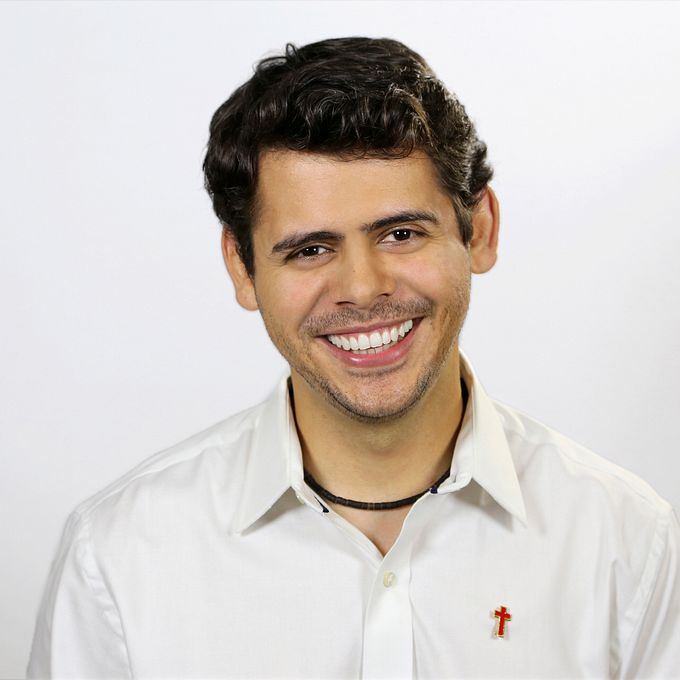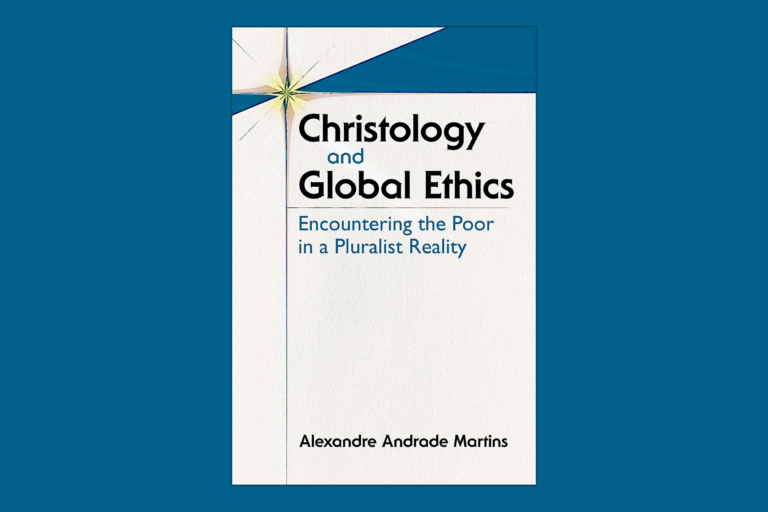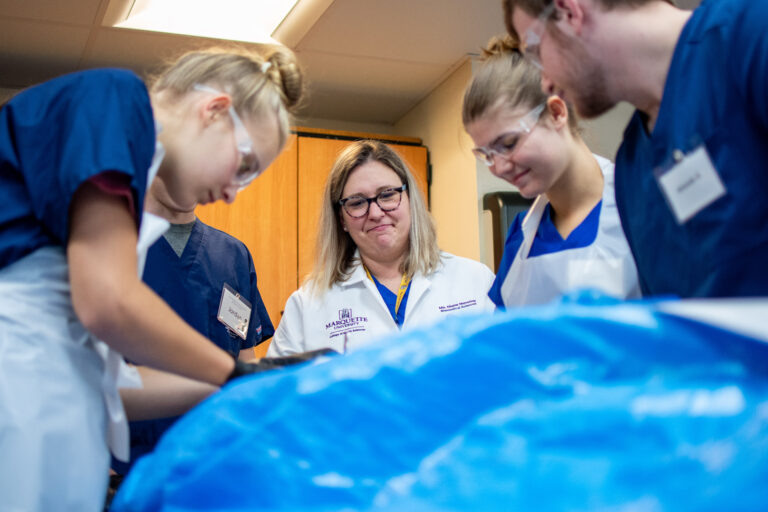
“Christology and Global Ethics” offers a comprehensive approach to Christology that combines the Bible, theology, and ethics and presents a dynamic understanding of faith in Jesus that embodies it ethically in reality. It demonstrates how different areas of theology, including theological bioethics, are related and form a unity around the mystery of Christ and the faith experience of a Christian community. It provides an excellent introduction to theological studies and method.
Learn more or purchase this book at Paulist Press
Martins answered some questions about his new book, including his favorite part of the writing process, what he hopes the book can accomplish and where the idea for the book came from.
How would you describe the book in one sentence?
This book offers a comprehensive approach to theological bioethics grounded on the theological discipline of Christology, combining Biblical studies, systematic theology and ethics to examine a dynamic experience of understanding the faith in Jesus and how it is ethically embodied it in a concrete reality.
Is this your first book? What is your publishing history?
No, it is not. I have published several books in English, Portuguese and Spanish. “Christology and Global Health” is my third book in English. My first one was “The Cry of the Poor: Liberation Ethics and Justice in Health Care,” published by Lexington Books in 2020. Then I co-edited the book “A Prophet to the Peoples: Paul Farmer’s Witness and Theological Ethics,” published by Wipf & Stock in 2023. I also have nine books published in Portuguese in Brazil, my home country, and one in Spanish as co-editor. I also have published several articles around the world dealing with issues of bioethics, liberation theology and global public health.
Where did the idea for this book come from?
This book is the fruit of a long process of engagement with impoverished communities in Latin America, especially in Brazil. It wasn’t a book that originated from a sudden insight or the discovery of a research subject with the thought, “Wait a minute, this is a great idea, I should work on it and write a book.” “Christology and Global Ethics” is part of an existential commitment to serve impoverished communities grounded in the Catholic social principle of the preferential option for the poor. Being part of these communities and observing their experience of Christian faith and how it guides them in their struggle for better living conditions inspired me to want to understand their religious and social experience.
Over a period of more than 10 years with these communities, I took notes, wrote reflections, and brought them to be discussed with community members. This involved experiencing community gatherings, celebrations and grassroots initiatives related to healthcare access. One day, I realized that I should write a book with these experiences, recognizing that academic speaking is an ethnographic experience. This became a complementary part of my academic research in theology, ethics and global health. The book project resulted in the volume published now.
What do you hope to accomplish with this book?
At the end of the introduction, I expressed that “the ultimate goal of this book is to offer resources for Christian communities that seek to better understand their faith and to discover ways of living out the teaching of Jesus more fully. In other words, my dream for this book is that the material it provides will reach faith communities, reading groups and introductory theological studies in Churches and Catholic schools.” As a Catholic theologian and bioethicist, this is my pastoral goal. Since this book emerged from the experience of communities of faith, I hope these and other communities can view this book as a tool to help them grow. Moreover, I hope this book can be read, discussed and critiqued by members of the academic community working on theological ethics and bioethics. Through this engagement, we can advance in our pursuit of the inclusion and participation of new voices to develop new perspectives and experiences of faith that lead to the work of justice.
What was your favorite part of the writing/editing process?
My favorite part was when I brought some drafts of pieces of the book to be read and discussed in community meetings. This was a process of teaching and learning at the same time. Some of those pieces contained very technical information, such as the historical social organization during the time of Jesus and the lack of palliative care in the public health system in a low-income country. I had to teach these things in accessible language so they could understand. Then, they would respond to the text based on their own experiences, for example, understanding the meaning of having faith in Jesus in a context where people they knew were sick and dying without proper medical care. They taught me valuable lessons that always prompted me to revise my draft, and sometimes even rewrite it completely. This was a great experience. I also loved when I was making the final revision to send the manuscript to my publisher. During this step, although I was alone in my office in front of a computer, I felt like I was hearing all these voices and contemplating the faces of these incredible teachings I had received.
How does this book advance or complement your research and/or teaching?
This book advances interdisciplinary studies in theology and bioethics by combining areas that are usually developed with little communication among them. Additionally, it brings the voices of marginalized communities to the academic discussion of theological bioethics, demonstrating that these communities and the voices of their people have a valuable contribution to offer to the academic and political discussion related to ethics and global health. Although this book adopts a theological perspective, it is not an essay on dogmatics. Instead, it showcases the experience of Catholic communities engaging with Jesus’ mystery in a circular relationship between Bible, theology, ethics and pastoral practices within the context of socio-economic oppression and health inequalities.
In the field of theology, this book offers a method of doing theology that goes beyond the polarization of Christology from above and Christology from below. In terms of ethics and global health, it provides an understanding of bioethical issues in public health from the perspective of the poor and historically marginalized communities in Latin America. These two accounts work together to advance the field of theological bioethics by considering the contribution that comes from the experience and worldviews of the poor and marginalized.
I also believe that this book serves as a valuable resource for the classroom, particularly for undergraduate and graduate classes in Christology, theological bioethics, and bioethics in general. It has an introductory aspect that aims to help students begin their study in these disciplines.
If you have recently published a book, or if you have one coming out, we would like to feature your publication in an upcoming Marquette Bookshelf feature. More information on the submission process is available online.
Book Details
- Publisher: Paulist Press (Dec. 5, 2023)
- Language: English
- Paperback: 224 pages
- ISBN-10: 0809156245
- ISBN-13: 978-0809156245



